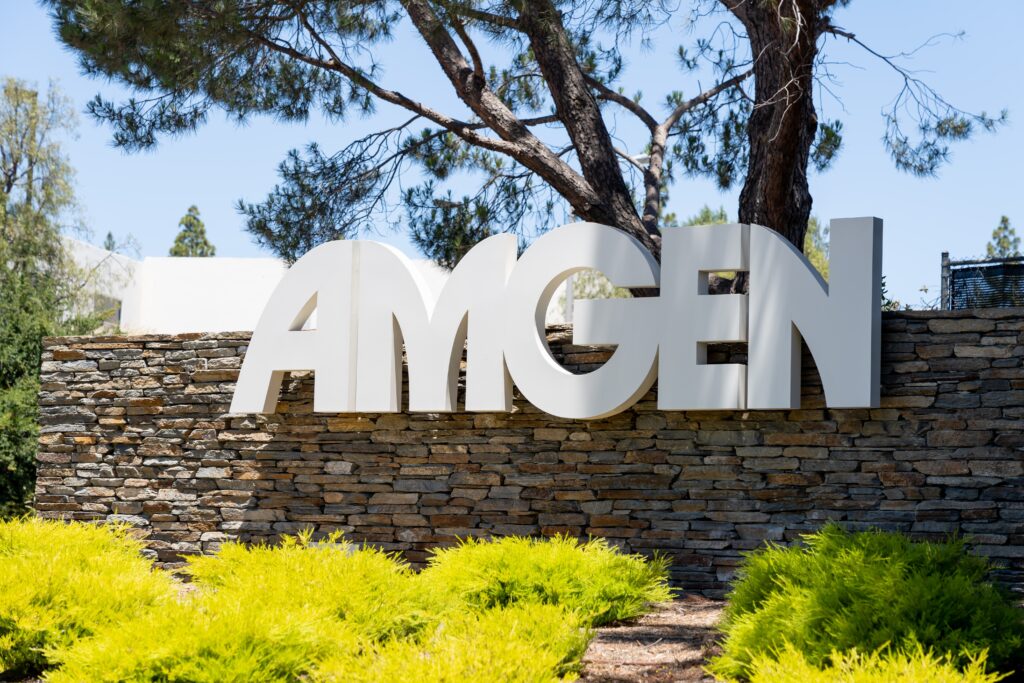Amgen’s Wezlana (ustekinumab-auub) has received US Food and Drug Administration (FDA) approval as a Stelara biosimilar for the treatment of several inflammatory diseases including Crohn’s disease, ulcerative colitis (UC), plaque psoriasis and psoriatic arthritis.
The biosimilar to Johnson & Johnson’s Stelara is approved for use by adults for the listed indications, as well as pediatric patients six years of age and older for the dermatologic indications (plaque psoriasis and psoriatic arthritis).
It is specifically approved as an interchangeable biosimilar, which means it may be substituted for the original product at the pharmacy level by a pharmacist without the need for a healthcare professional to prescribe the change. This gives it a significant edge over a simple biosimilar designation.
According to the FDA, a biosimilar is a biologic that is highly similar to another biologic that is already FDA-approved, and that has no clinically meaningful difference from the original biologic. To gain interchangeable status, a company has to demonstrate no clinically meaningful difference from the reference product through a clinical switching study.
While Wezlana is on track to becoming the first Stelara biosimilar, it won’t be available any time soon. Amgen and Johnson & Johnson struck a settlement in May in which Wezlana’s market launch will be delayed until January 1, 2025 in exchange for Johnson & Johnson dropping a patent infringement lawsuit against Amgen.
Johnson & Johnson has a similar settlement with Alvotech and Teva to delay the launch of their Stelara biosimilar, pending FDA approval, to no later than Feb 21, 2025.
Related: Top 30 Pharma Companies in 2023: Statistics and Trends
It’s no surprise that Johnson & Johnson is making moves to delay the market entry of Stelara biosimilar competition as Stelara was the company’s top-selling product last year with $9.7 billion in sales, accounting for ten percent of Johnson & Johnson’s revenue.
Stelara entered the market in 2009 and is approved for the treatment of adults with Crohn’s disease and ulcerative colitis, and individuals six years of age and older with plaque psoriasis and psoriatic arthritis.
Several other companies are developing Stelara biosimilars, which include Samsung Bioepsis, Celltrion, Biocon and Bio-Thera Solutions in partnership with Hikma Pharmaceuticals.
The FDA approval of Wezlana was based on a review of scientific evidence demonstrating it is highly similar to Stelara and that there are no clinically meaningful differences between the two products in terms of safety, efficacy and purity.
The FDA said this evidence included comparisons of the products to confirm similarity in the structural and functional features of Wezlana and Stelara (including those known to impact safety and efficacy), as well as comparative human pharmacokinetic data, clinical immunogenicity data and other clinical safety and effectiveness data. The data also demonstrated that Wezlana met the requirements to be interchangeable with Stelara.
Amgen is enjoying another big biosimilar win this year with its Humira biosimilar Amjevita having finally hit the market after a seven-year wait due to the terms of a patent settlement with AbbVie. Amjevita is the first biosimilar of AbbVie’s blockbuster autoimmune drug Humira to enter the market.
Amgen got in about half a year early as a slew of Humira biosimilars launched this year following Amjevita. Amjevita was approved by the FDA in 2016 and has generated $466 million in sales for Amgen since its launch this year at the end of January.
While other companies are throwing in the towel on biosimilar development, Amgen is rejecting the trend and forging ahead. In its quarterly report released earlier this week, the company said the FDA had accepted its application for approval of its biosimilar version of Regeneron and Bayer’s blockbuster macular degeneration med Eylea. The company said it is also boosting investment into the development of a biosimilar version of Bristol Myers Squibb’s oncology drug Opdivo.












Join or login to leave a comment
JOIN LOGIN